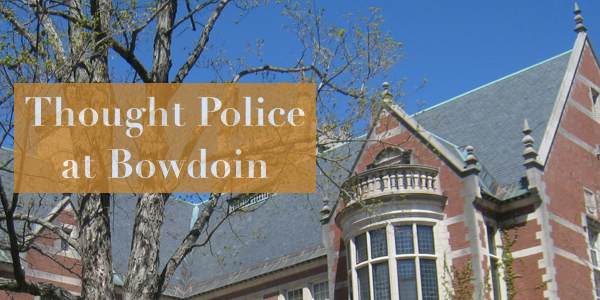 In college one of my majors was broadcasting. As my classmates and I studied the media we learned, from the southern scholar Richard Weaver, that there are certain words or phrases that carry good thoughts or feelings beyond their literal meaning, and certain phrases that carry negative associations in the same way. ((See Joseph A. Scotchie, The Vision of Richard Weaver (Edison: Transaction, 1995), 155.)) Weaver called these expressions “god terms” and “devil terms”. For example, “freedom” and “bipartisan” might be seen as god terms. It has been suggested that, if a speaker wants to get an audience on his side, he should associate his message with as many god terms as possible. On the other hand, a speaker should avoid connecting his theme with devil terms like “difficulties” or “guesswork.”
In college one of my majors was broadcasting. As my classmates and I studied the media we learned, from the southern scholar Richard Weaver, that there are certain words or phrases that carry good thoughts or feelings beyond their literal meaning, and certain phrases that carry negative associations in the same way. ((See Joseph A. Scotchie, The Vision of Richard Weaver (Edison: Transaction, 1995), 155.)) Weaver called these expressions “god terms” and “devil terms”. For example, “freedom” and “bipartisan” might be seen as god terms. It has been suggested that, if a speaker wants to get an audience on his side, he should associate his message with as many god terms as possible. On the other hand, a speaker should avoid connecting his theme with devil terms like “difficulties” or “guesswork.”
It seems to me that “discrimination” has become a devil term. Many people evidently think that we should get rid of any kind of discrimination at all, no matter in what context we find it. But the fact is that we discriminate every day and we can’t help it. For example, we choose to eat this fruit over that fruit, because we prefer the taste of this fruit. We drive this car instead of that car because this car has certain qualities we find desirable in a car. To have preferences like this at all is to discriminate.
Sometimes people must discriminate even among other people. If a basketball coach wants to win games, he would be wise to choose taller players instead of shorter ones. And, in order to have a religious student group on a college campus, there must be some rules about who can lead the group. For example, one would think that if a person does not profess Christianity, then evidently he cannot lead a Christian student group. Yet recently at Vanderbilt, Bowdoin College, California State, and elsewhere, religious groups have been forced off campus simply because they would not allow their leaders to be chosen from people who deny their essential tenets. ((See Jay Parini, “The New College ‘Thought Police’,” http://www.cnn.com/2014/06/13/opinion/parini-evangelical-college-clubs/index.html?hpt=hp_t4 (2014).)) Clearly, “anti-discrimination” thought police efforts have gone too far, making it impossible to have a Christian student organization on some campuses.
The Bible commands us to discriminate in some senses and forbids us to discriminate in others. We must not pick and choose to whom we will show Christian love. Jesus said, “But I say to you, Love your enemies and pray for those who persecute you” (Matthew 5:44). “Let all your things be done with charity” (1 Corinthians 16:14; cf. James 2:1-9).
On the other hand, we must discriminate between false gods and the true God (Joshua 24:15; Jeremiah 18:15; 1 John 5:21). We must discriminate between false doctrine and true doctrine (2 Peter 2:1-3; Revelation 2:12-17). Consequently, we must also discriminate between false teachers and true teachers (Titus 1:9; 2 John 9). Then, as we apply what we learned, we must discriminate between a sinful lifestyle and a righteous lifestyle (2 Peter 3:11-12; 2 Corinthians 13:5-10).
In the Day of Judgment, God will discriminate between the sheep and the goats (Matthew 25:32-33). On which side will we find ourselves? Only by living a discriminating life will we be saved on that day.